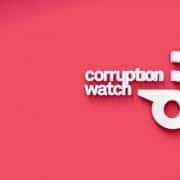|
Getting your Trinity Audio player ready...
|
By Cynthia Schoeman
First published on Ethics Monitor
The importance of organisational culture rests on the definition of culture as “the way things are done around here” because it illustrates that culture shapes behaviour in organisations. The quest for more ethical workplace behaviour makes culture especially pertinent and the establishment of ethical conduct as the norm should be reason enough to position an ethical culture as a primary goal. However, organisational culture can stray very far from being ethical to being extremely toxic.
Toxic cultures can take various forms
Typically an ethical culture would be characterised by ethical leadership, high trust, integrity, accountability, respect, fairness and action in accordance with the law and the organisation’s code of conduct and regulations. A toxic culture, as illustrated by the following examples, can exclude some or all of these characteristics.
Goldman Sachs was a widely publicised example, exposed by Greg Smith’s opinion piece in the New York Times in March 2012, Why I Am Leaving Goldman Sachs. In it Smith, a Goldman Sachs executive director, pointed out how much the company’s culture had changed. “Culture was always a vital part of Goldman Sachs’s success. It revolved around teamwork, integrity, a spirit of humility, and always doing right by our clients. The culture was the secret sauce that made this place great and allowed us to earn our clients’ trust for 143 years.”
But those strengths were lost, replaced by what Smith described as a “toxic and destructive” environment.
Another example of a toxic culture was (is?) Uber, the ride-sharing company where the once untouchable co-founder and CEO, Travis Kalanick, resigned and over 20 employees were fired in June 2017. Their culture derived mostly from the company’s leadership, notably Travis Kalanick, and the protection from the consequences of misconduct offered to ‘high performers’. This situation surfaced following Susan Fowler’s February 2017 blog, Reflecting On One Very, Very Strange Year At Uber. Working as an engineer for one year at Uber, her sexual harassment complaint was rebuffed and she experienced retaliatory behaviour when her perfect performance score was downgraded for “undocumented performance problems”. She also witnessed widespread back-stabbing behaviour in which employees undermined their direct superiors to climb the corporate ladder.
Locally the SABC has been in the news a great deal for its dysfunctional culture. This was identified by the Public Protector’s February 2014 report, When Governance and Ethics Fail, and its findings illustrate how the organisation’s culture was impaired. Hlaudi Motsoeneng, then acting COO, was found to have enriched himself with three salary increases in a single year and to have purged senior officials without following the proper procedures. Despite this report, other damning issues and losing multiple court cases, Motsoeneng managed to stay in his position until June 2017 when he was dismissed by the SABC’s Interim board.
His tenure was described in newspaper headlines as a “reign of terror” and “SABC ruled by a culture of fear and silence”, which translated into employees being afraid to speak up or to contradict their superior for fear of recriminations.
In deeply toxic cultures a particularly pernicious problem involves unethical behaviour that is driven by instructions – often amounting to coercion – from a superior. Failing to ‘co-operate’ will almost certainly incur a personal cost, whether trumped up charges to be suspended or dismissed, or more subtle repercussions such as being overlooked for an increase or a promotion. In this situation ethical conduct is punished and unethical conduct (viewed as being co-operative) is rewarded. Trying to solve this by reporting it is fraught with risk as documented in Marianne Thamm’s March 2015 article, SA whistleblowers: assassinations, victimisation, marginalisation for doing the right thing.
Can a toxic culture be fixed?
As regards fixing a toxic culture, Liz Ryan makes a noteworthy point in her Forbes article Six Signs Your Company’s Culture Is Toxic: “In the history of mankind a broken corporate culture has never gotten better on its own. Your two choices are to leave the organisation or to name the elephant on the table and let some air into the conversation. Both options take grit and nerve.”
In Uber’s case a primary driver for change was a threat to the company’s profitability. Until the money was at risk, everyone and everything else was safe – despite the extent of the misconduct.
In most cases leaders still need to drive the culture change because leadership is the most impactful factor to change organisational conduct. As the concept of a ‘social licence to operate’ applies to organisations as corporate citizens, so is there a need for ‘an employee licence to lead’. Therefore when leaders have been complicit in the toxic behaviour, their departure is essential for the organisation to move forward.
Even if leaders are not personally guilty of the behaviours that created the culture rot, their inaction and intentional blindness (looking the other way) make them guilty of condoning the destructive culture. Their departure may therefore also be necessary unless they have enough credibility to lead a change. Companies also need to root out a bad leader’s followers to ensure that the unethical legacy is not continued by others.
The organisation will need to design interventions to share and embed the desired culture and behaviours with its leaders and employees. If ethics is not already a corporate strategic goal, this would be an opportune moment to include it as such.
And if the organisation does not have a sound, comprehensive ethics management system – that extends beyond just a code of conduct and a whistle-blowing line – that too would need to be implemented. This should be backed up by strengthened accountability and consequence management mechanisms. Ethics training can also reinforce a culture shift, which should include a focus on reinforcing the company’s values.
This is not an easy journey but an essential one. But a change often hinges on who has the courage to surface the toxicity for the necessary action to follow.
• Cynthia Schoeman is the founder and MD of Ethics Monitoring & Management Services (Pty) Ltd. She has worked in the field of ethics since the 2000 to improve workplace ethics and to promote the proactive management of ethics.







